
The Hungry Giant of Khao Yai.
A Close Encounter in Khao Yai: When Curiosity and Hunger Collide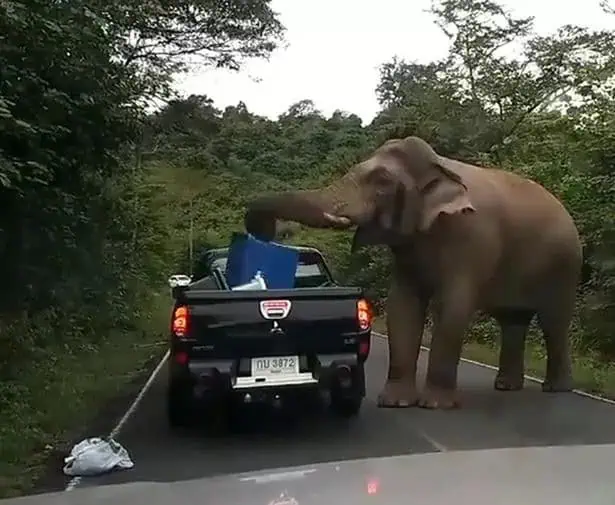
It was meant to be a peaceful family drive through Khao Yai National Park, one of Thailand’s most breathtaking wildlife sanctuaries — a place where rolling hills, misty forests, and the songs of unseen birds promise serenity. For Wanlop Seeput, 35, and his family, it was supposed to be a simple Sunday outing, a chance to breathe in the forest air and enjoy the quiet rhythm of nature.
But that calm was shattered in an instant when their path crossed with one of nature’s largest — and hungriest — visitors.
It happened on a quiet Sunday afternoon around 2 p.m. The Seeput family had stopped along the roadside to admire the scenery, when the forest canopy seemed to stir. Out from the trees stepped a massive bull elephant, its tusks glinting in the sunlight, its immense frame swaying with a slow, deliberate grace. The earth seemed to tremble faintly beneath its weight.
At first, it looked almost peaceful — curious, perhaps even playful. The family watched in awe as the elephant lumbered closer, stopping at the first vehicle in line, a black Mitsubishi pickup truck. Then, with surprising precision, the animal began to investigate. Using its trunk like a giant, dexterous hand, it pried open plastic boxes, rummaged through bags, and tossed aside containers, following the irresistible scent of food.
“He’s hungry,” someone whispered inside Wanlop’s car. “He’s looking for food. I hope he doesn’t get angry.”
The air grew heavy with tension. Inside the car, no one dared to move. Cameras recorded quietly as the elephant finished inspecting the pickup — and turned its attention toward them.
Slowly, the creature approached, each step a deep, rhythmic thud that vibrated through the car’s metal frame. The Seeputs could see its reflection in the rear window — a towering shadow of raw power and instinct. The great trunk reached up, brushing the back of the vehicle, tracing the edges as if searching, testing, learning.
“I thought he was going to attack,” Wanlop recalled later. “My hands were shaking on the steering wheel. I couldn’t breathe. My wife kept saying, ‘Stay calm. Don’t move. Don’t make him angry.’”
For what felt like forever, time stood still. The forest held its breath — no birdsong, no wind, only the soft snorts of the elephant and the pounding of human hearts.
Then, just as suddenly as it had appeared, the elephant lost interest. With a deep, rumbling sigh, it turned away and lumbered down the road toward another car, still following the invisible trail of food scents drifting from open windows.
Only then did Wanlop exhale, starting the engine with trembling hands. He drove away slowly, his pulse still racing, his family silent but safe. They had escaped without a scratch — though their nerves told a different story.
Later, reflecting on the encounter, Wanlop said quietly, “He wasn’t angry — just hungry. He was following his instincts. We were lucky. Really lucky.”
Forest officials later explained that elephants in Khao Yai have gradually learned to associate cars with food. Many visitors bring fruits, snacks, or even leftover meals, and when these scents linger, the animals come searching. Over time, this has become a growing problem — not just for the safety of tourists, but for the elephants themselves. Animals that lose their fear of humans often face danger, from traffic accidents to changes in their natural foraging behavior.
Yet for those who witnessed the event that day, the memory remains vivid — a breathtaking reminder of how fragile the line is between the human world and the wild. The sight of that elephant towering over the small cars was not a vision of rage, but of need — a majestic creature simply trying to survive as its ancient home shrinks around it.
As the Seeput family finally left the park, Wanlop looked one last time in the rearview mirror. The great elephant was already fading back into the green — its hunger unsatisfied, its dignity untouched, and its presence lingering like a quiet echo in the heart of the forest.
News in the same category


A Real-Life Superhero: The Mother-in-Law Who Became a Caregiver and a Lifeline
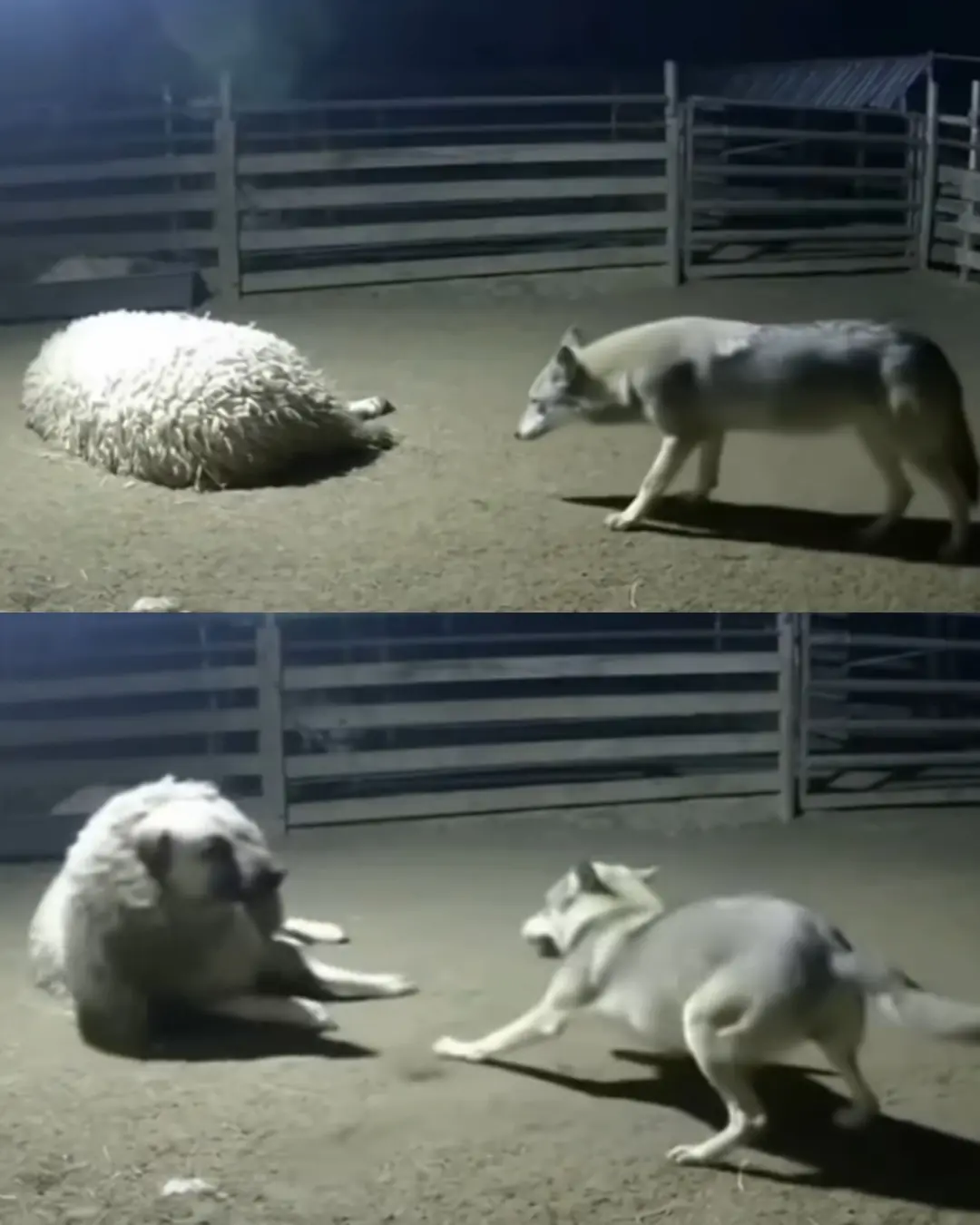
The Dog Who Wore a Sheep’s Skin.

A Simple Act of Kindness: Man Rescues Turtles from the Dinner Plate
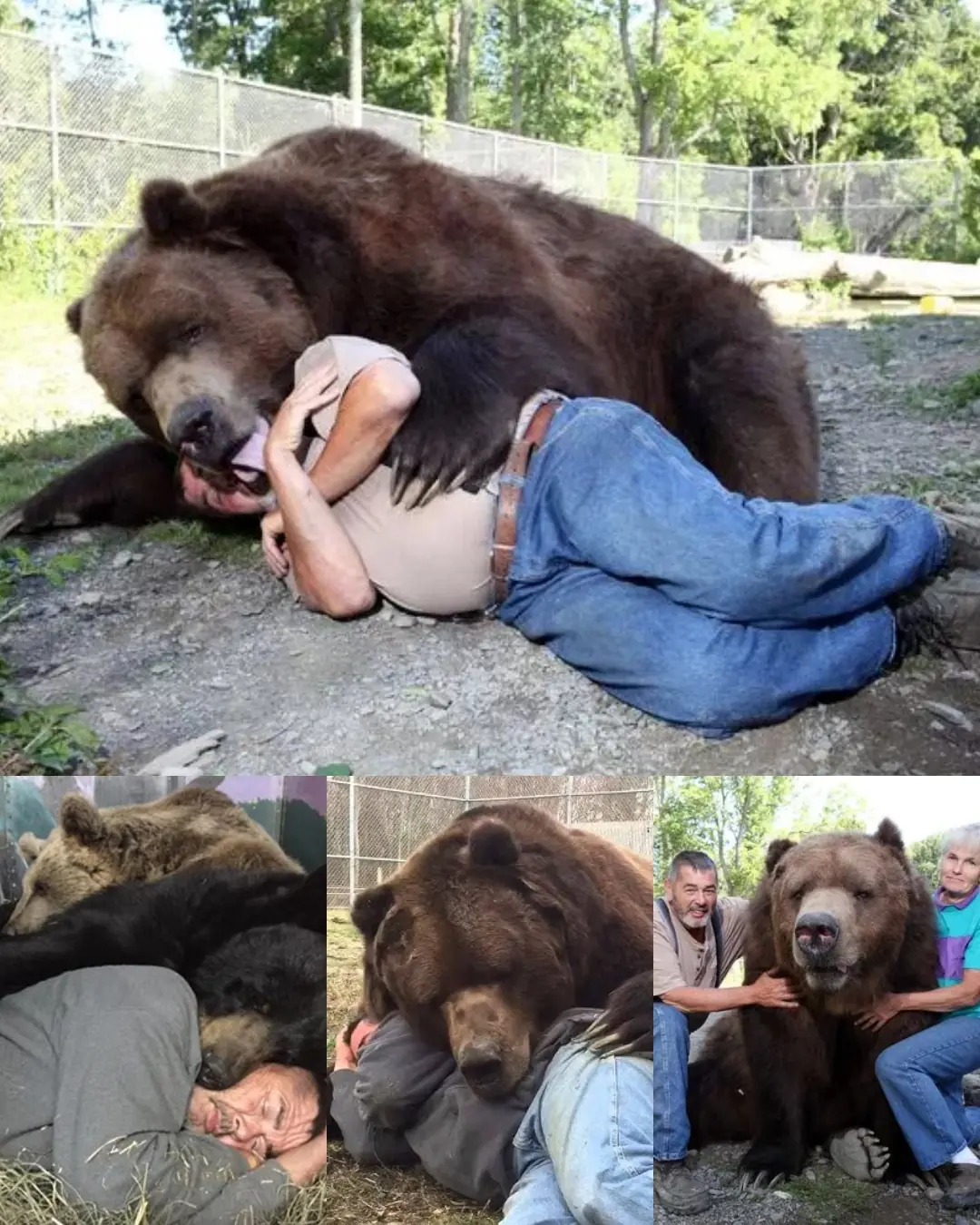
Jimmy the Bear: A Story of Love, Care, and Compassion

A Seventeen-Year-Old’s Battle for Tomorrow: Yerasyl’s Fight for Life

A Rare Sight: Bright Orange Nurse Shark Makes Scientific History in the Caribbean

Two Lives Powered by Machines: Madzia and Nina’s Fight Against Myasthenia Gravis

A Car Repair That Means Freedom: Wiktor’s Fight Against SMA
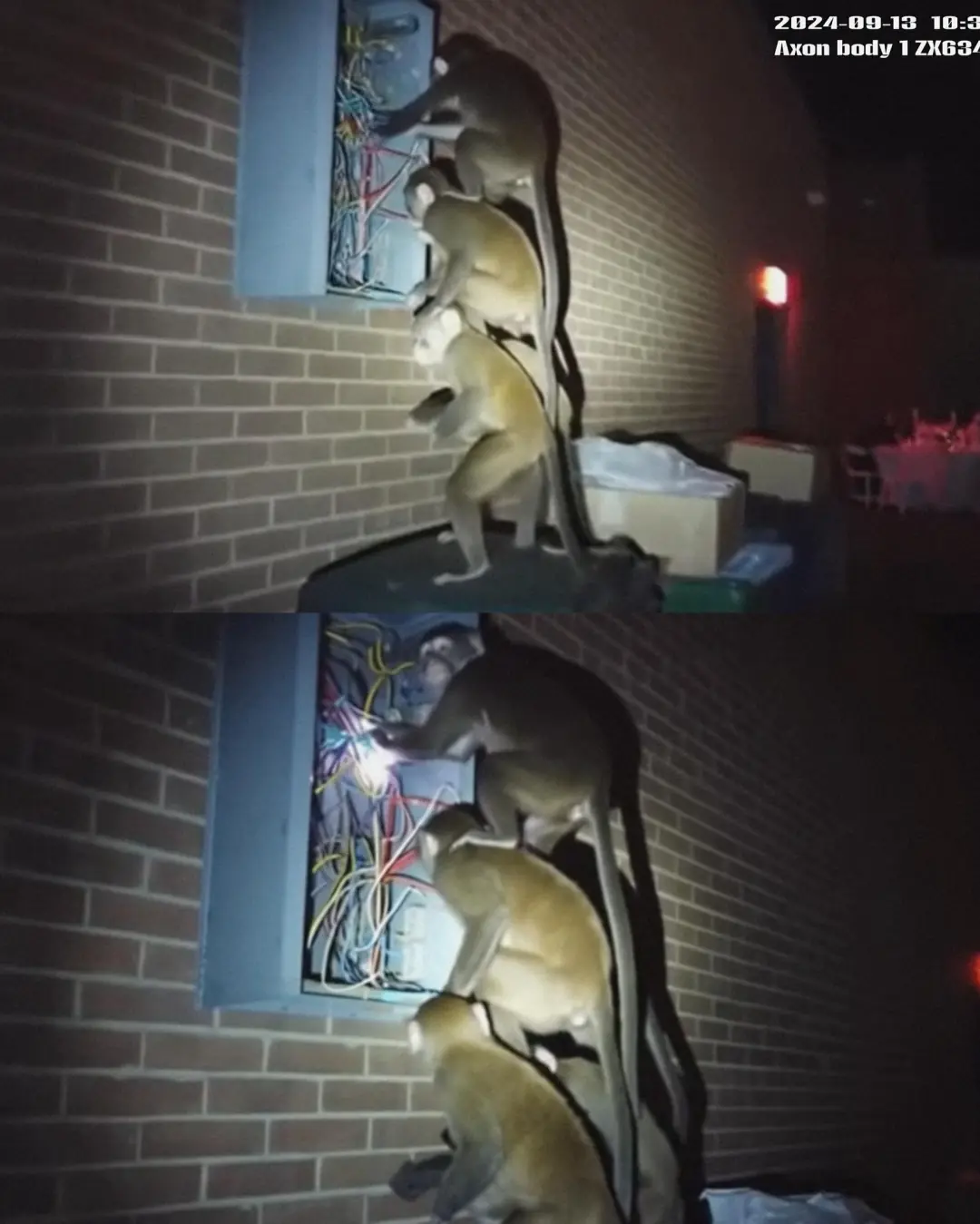
Monkeys, Mischief, and a Wedding to Remember: The Night Thailand Went Dark
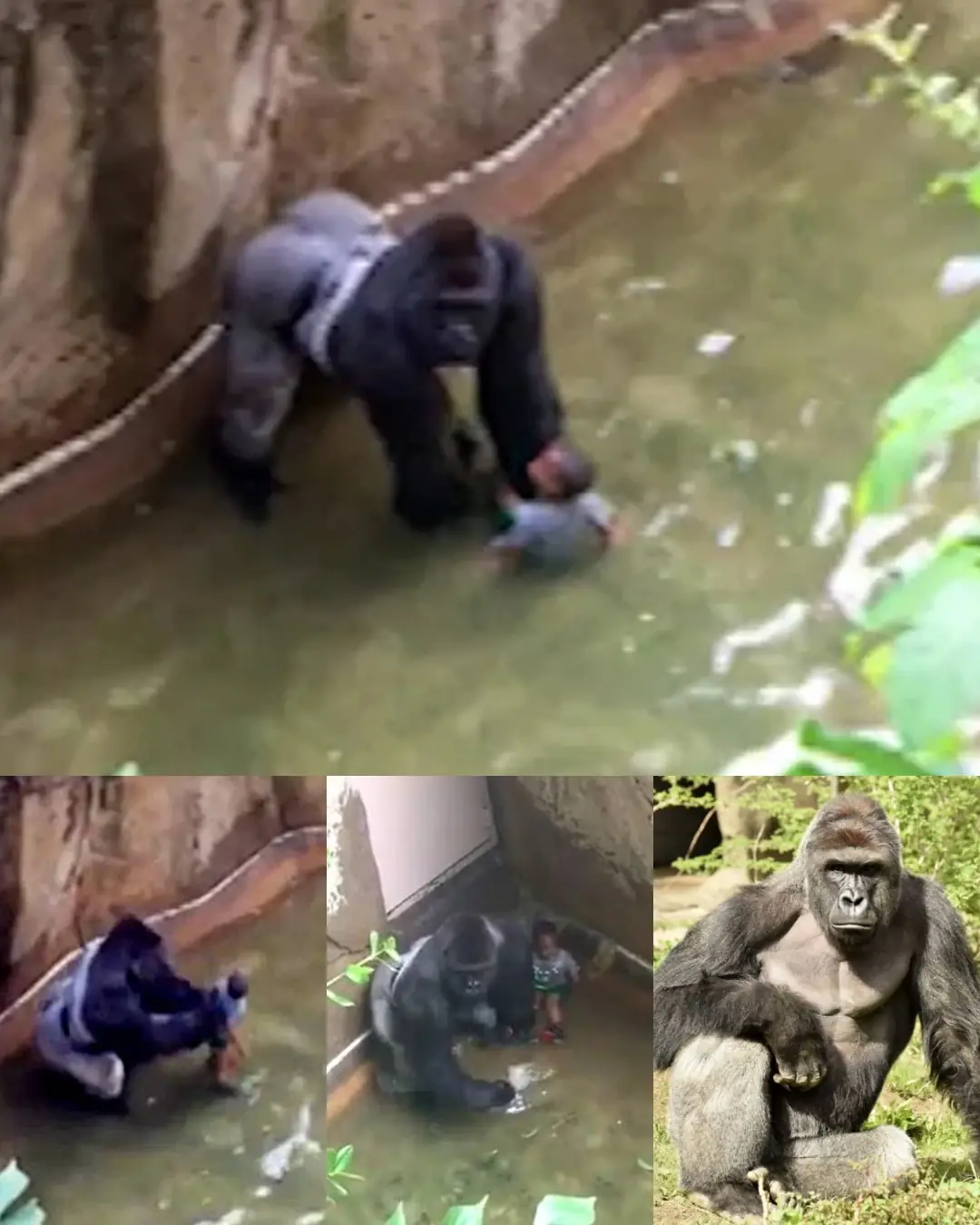
Tragic Incident at Cincinnati Zoo: A Gorilla’s Life Lost in Effort to Save a Child

Theo’s Journey: A Day of Progress, Challenges, and Unwavering Hope – October 21st Update

Home Again: A Family’s Journey Through Joy, Exhaustion, and Uncertainty
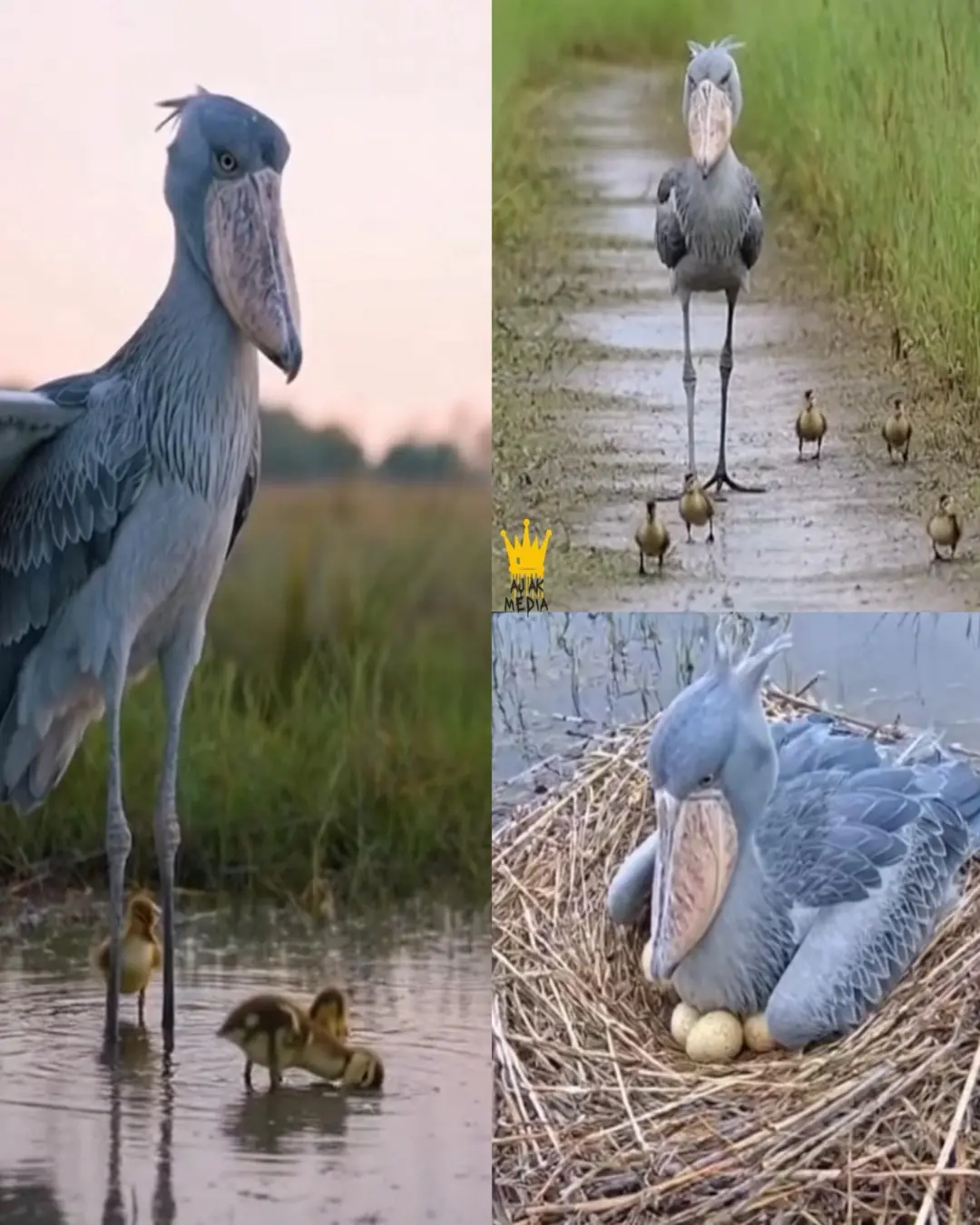
When the Jungle Looked Back: The Astonishing Case of Chimps Trying to Domesticate Alligators
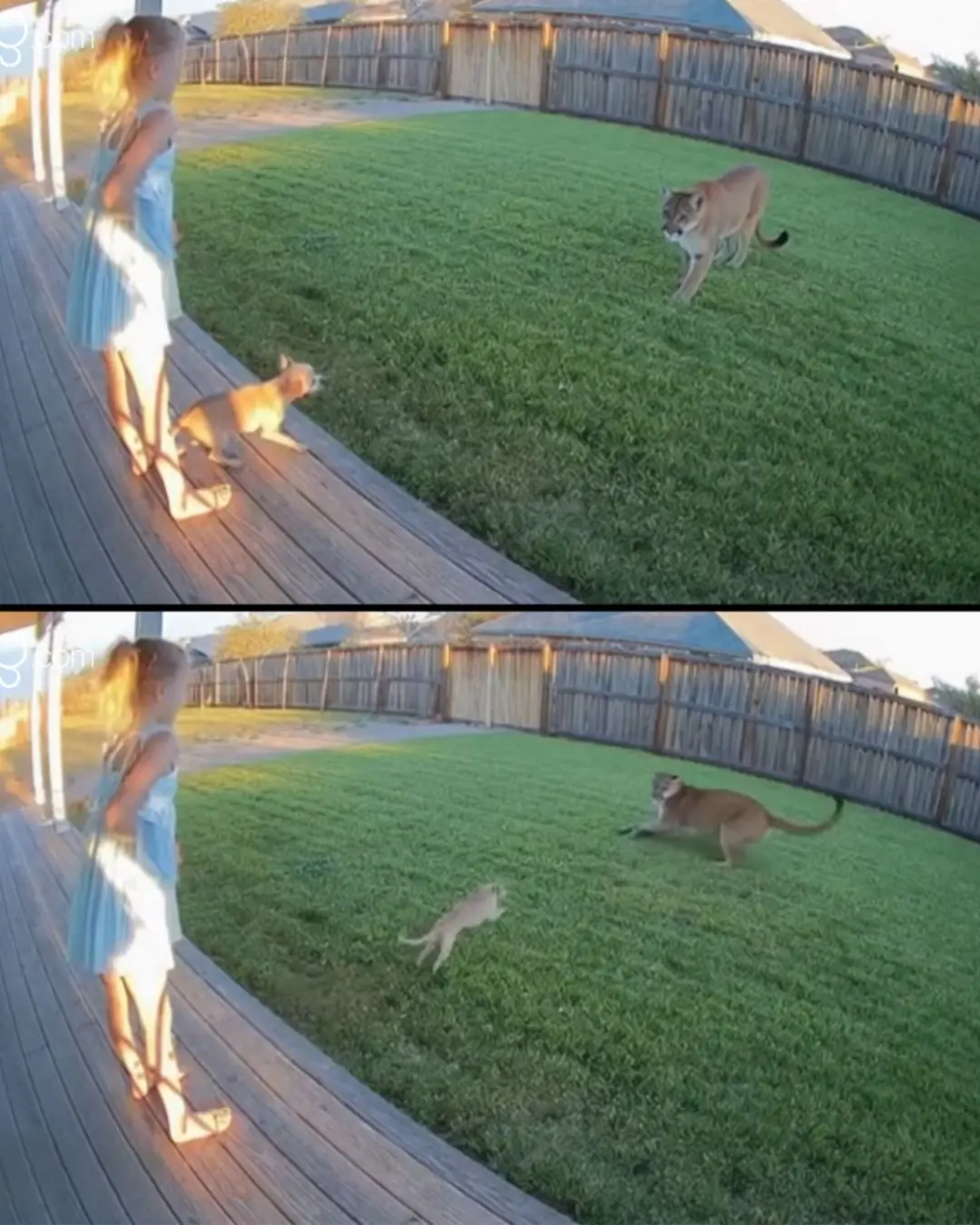
Tiny Hero, Big Heart: The Chihuahua Who Stared Down a Mountain Lion in Colorado

Zach Biggers: A Small Town Hero’s Fight Against Cancer
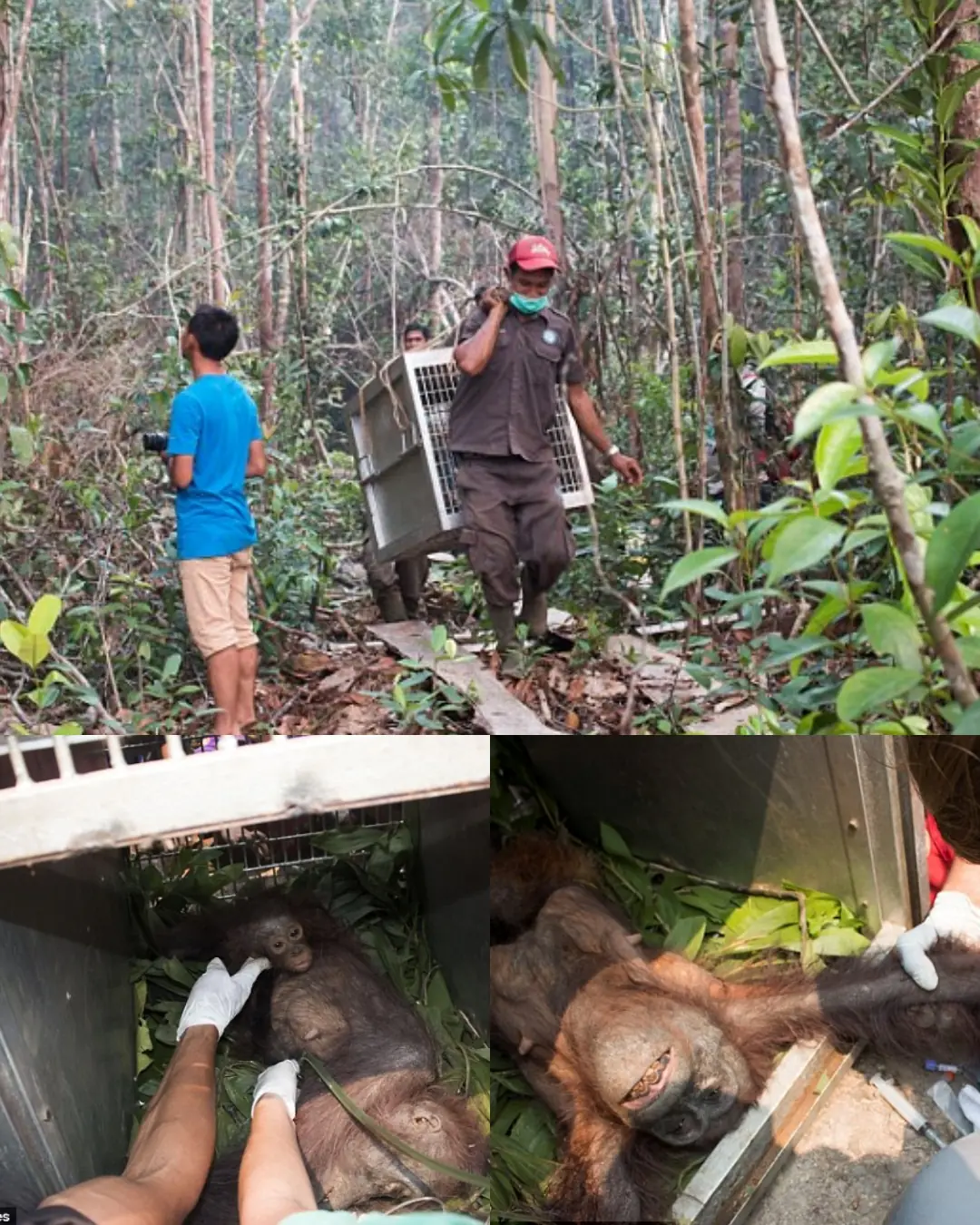
A Heartbreaking Rescue: The Struggle of Orangutans Amidst Indonesia's Wildfires
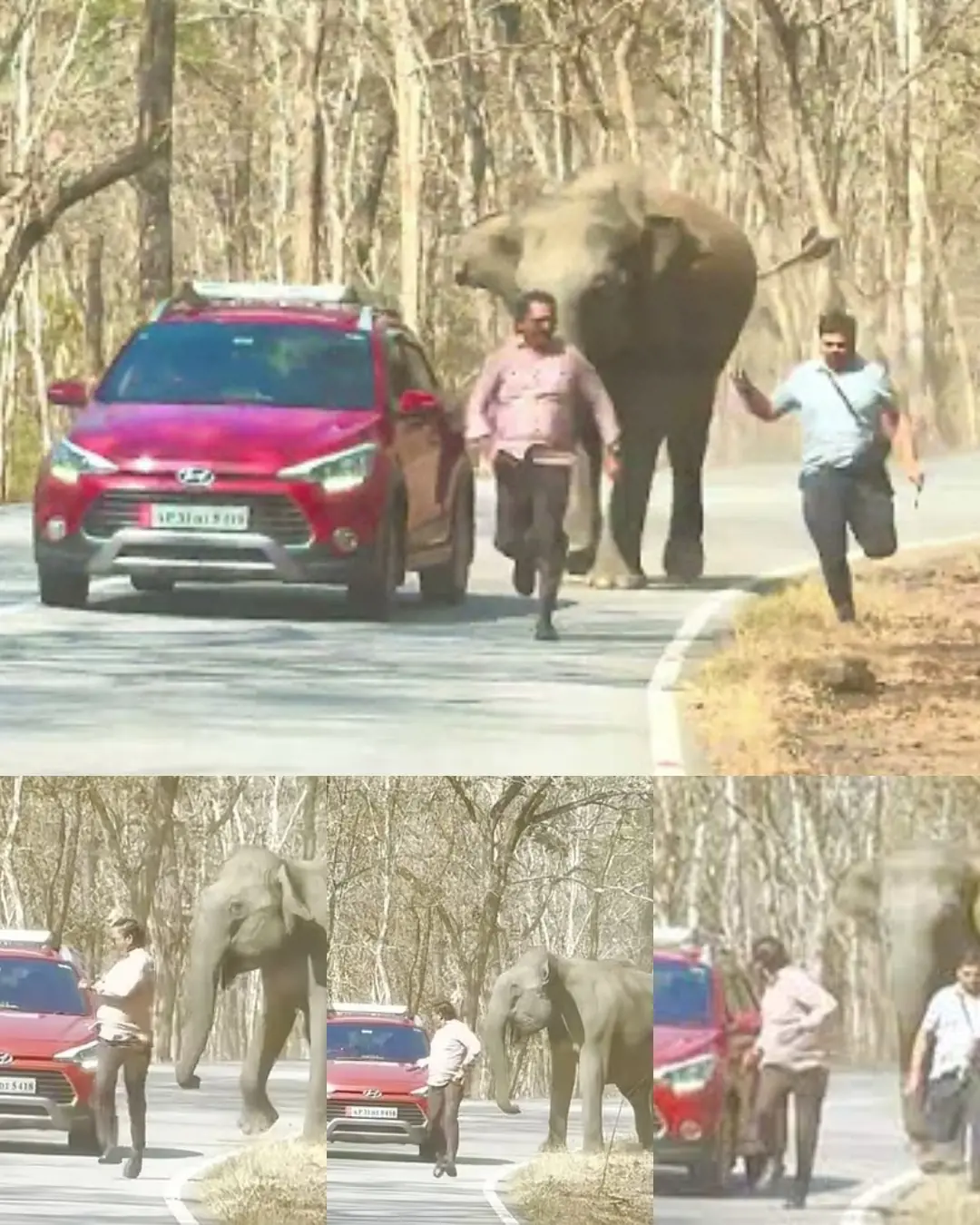
Wild Elephant Chases Tourists in Bandipur Forest: One Injured in Close Call

A Heartwarming Update on Zoey and Baylor Blythe: Miracles in the Making

The Invisible Lunch Fund: A Teacher’s Quiet Rebellion Against Shame.
News Post

Ginger and Salt Teeth Whitening Remedy

GTA 6 price set to soar for country of 130M people ahead of May 2026 release

Bizarre reason why only bald people can attend special screening of new Emma Stone movie

The Pain Most People Brush Off That Signals Serious Trouble

Common Misunderstandings Turn Water Purifiers into Breeding Grounds for Germs — Stop Now Before It Harms Your Whole Family

Warning Signs Your Arteries Need Cleansing and The Foods That Do It Best

This Is a Type of Leaf That the Liver Loves, But Unfortunately Many People Throw It Away! Eating It Once a Week Can Make Your Liver Healthier

If a Man Doesn’t Appreciate You, Here’s What You Should Do

Turn Papaya Leaves Into a Powerful Homemade Detergent

10 Warning Signs of Low Magnesium Levels and What to Do About It

Onion, Garlic, and Olive Oil Remedy for Varicose Veins: Natural Treatment and Benefits

A Real-Life Superhero: The Mother-in-Law Who Became a Caregiver and a Lifeline

The Dog Who Wore a Sheep’s Skin.

A Simple Act of Kindness: Man Rescues Turtles from the Dinner Plate

Jimmy the Bear: A Story of Love, Care, and Compassion

A Seventeen-Year-Old’s Battle for Tomorrow: Yerasyl’s Fight for Life

Black Locust (Robinia pseudoacacia): 14 Surprising Benefits and How to Use It at Home

A Rare Sight: Bright Orange Nurse Shark Makes Scientific History in the Caribbean

Two Lives Powered by Machines: Madzia and Nina’s Fight Against Myasthenia Gravis
